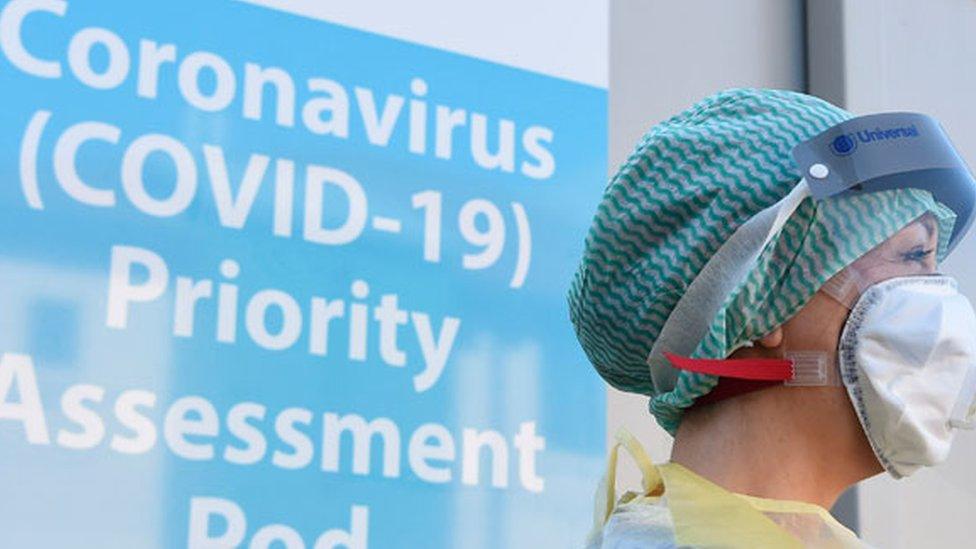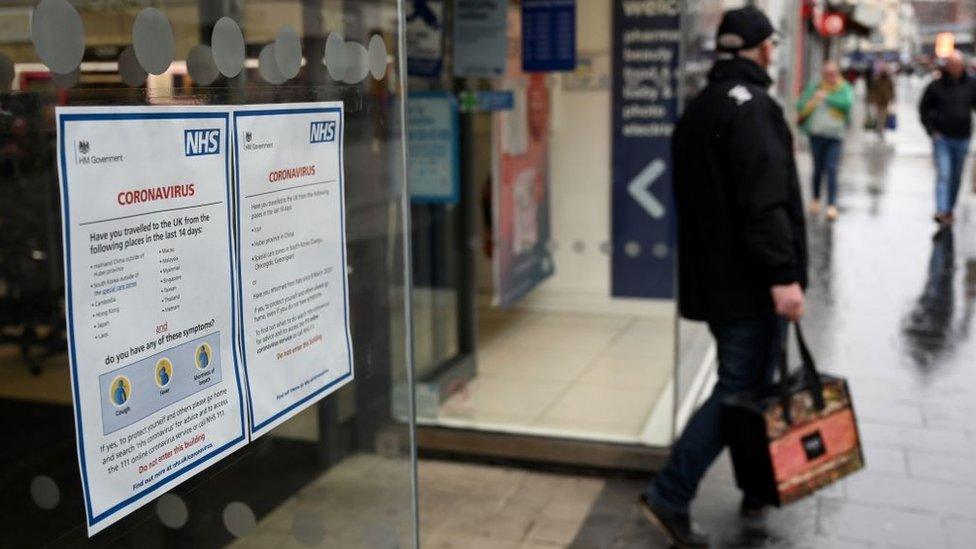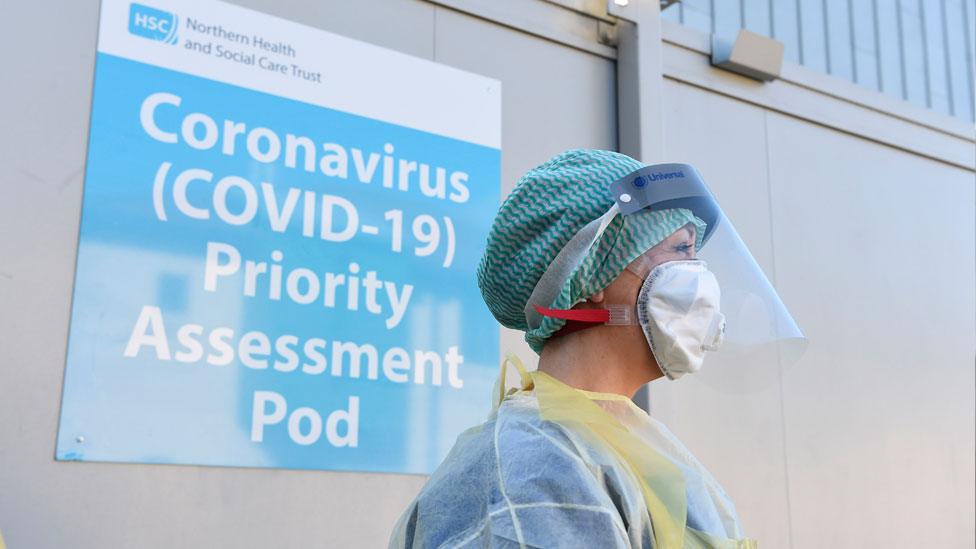Coronavirus: As Parliament steps back councils step up
- Published

Councils will need to provide care for people occupying acute beds in hospitals which will need to be freed up
Ministers don't want us to call it a "lockdown", although our increasingly deserted streets suggest that's exactly what it is.
Parliament's word for it is "recess". MPs have the coronavirus to thank for an extended Easter break.
They will not reassemble until Tuesday 21 April at the very earliest and most Westminster watchers expect it will take far longer than that.
Now, with Parliament taking a back seat, it's increasingly our local authorities who will be coming to the fore, into the front line.
I have seen details of a meeting which took place in Number Ten shortly before the latest tightening of the restrictions.
Sitting around the table were senior figures from local government along with Boris Johnson, the Health Secretary Matt Hancock and the Housing, Communities and Local Government Secretary Robert Jenrick, who grew up in Wolverhampton and now also rejoices in the title of "Cabinet Champion for the West Midlands".

Local authorities will focus on the needs of vulnerable people being "shielded" from the disease
I am told the prime minister explained how local authorities would be expected to lead their communities through this emergency.
He backed them to be creative and provide the energy to beat this disease in every street in the country.
"Local government is in the lead, resources will follow," he told them.
In areas with all-purpose councils, the seven West Midlands metropolitan authorities plus the unitaries in Stoke-on-Trent, Shropshire, Telford and Wrekin and Herefordshire, it is principally to their teams that people will turn, helping them cope during the crisis and enabling local economies to bounce back afterwards.
But in Staffordshire, Warwickshire and Gloucestershire, where there are two-tiers of local government, it will be the districts who will be mainly responsible for what the ministers at the meeting called "the last mile".
Three-point plan

The NHS is planning to buy-up hotel accommodation
First and foremost, the councils will need to provide care for people occupying acute beds in hospitals which will need to be freed up for the expected spike in coronavirus patients.
Second, councils will focus on the needs of vulnerable people being "shielded" from the disease: the over-70s, pregnant women and other people with debilitating illnesses.
And thirdly, the details were spelled out about the community "hubs" to help support and feed other people who, for various reasons, are not counted among "the critical cohort".
The councils were promised the support of the military, logistics experts and those volunteers who are now being mustered by Mr Hancock, who sounds increasingly like a latter-day Kitchener: he did actually say "your country needs you"!

A SIMPLE GUIDE: What are the symptoms?
AVOIDING CONTACT: Should I self-isolate?
MAPS AND CHARTS: Visual guide to the outbreak

The meeting was also told the NHS was planning to buy-up hotel accommodation to house front-line doctors and nurses working shifts of seven, 12-and-a-half hour stints in a row.
If the pandemic continues to develop at its present rate, these measures would be expected to come into effect sometime next week.
But for how long?
I wouldn't want to put money on which will come sooner: the "turning of the tide" envisaged by the prime minister in two months' time or the return of our MPs to their customary green benches.
Normally during a time of crisis we hear a chorus of demands from MPs for Parliament to be recalled. Not this time.
That's just one more reason why this is a crisis like no other.
- Published5 July 2023

- Published23 March 2020

- Published25 March 2020

- Published6 October 2021

